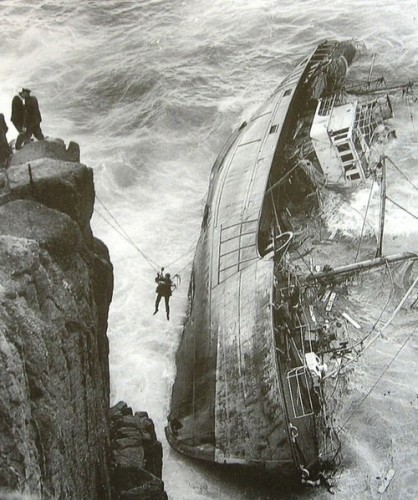
Continuing our brief series on some hot-spots in the Gospel by John.
 In early parts of the book of John, miracles are generally followed up with some kind of teaching, a w0rd in which Jesus draws a line between the act and himself. This is the case with the Feeding of the Five Thousand, which is then followed up by Jesus telling the crowd the next day that he is the Bread from Heaven. Doing it this way, Jesus becomes more than a teacher and more than a miracle worker—Robert Farrar Capon calls them “acted parables.” Doing it this way, Jesus is God Incarnate—his words are grounded in real dirt and sweat and bread; and his miracles are grounded in the deeper and fuller world of God’s way of doing things.
In early parts of the book of John, miracles are generally followed up with some kind of teaching, a w0rd in which Jesus draws a line between the act and himself. This is the case with the Feeding of the Five Thousand, which is then followed up by Jesus telling the crowd the next day that he is the Bread from Heaven. Doing it this way, Jesus becomes more than a teacher and more than a miracle worker—Robert Farrar Capon calls them “acted parables.” Doing it this way, Jesus is God Incarnate—his words are grounded in real dirt and sweat and bread; and his miracles are grounded in the deeper and fuller world of God’s way of doing things.
There’s a hitch in this one, though. The Five Thousand have been fed, but before John rears into the whole explication portion of this technique, there’s this weird scene where Jesus walks on water and scares the holy bananas out of everyone on the boat. “I am the Bread of Life” is coming, but there’s something John’s trying to say by wedging a dark night (heh) sort of miracle between them. (Granted, maybe John and the rest of the guys knew they had to put this in there, because it was just so memorably freaky…but that’s not my tack.)
Surrounding this odd encounter are two shores. One shore is the Wilderness, where Jesus has basically fed the masses from a couple half-bags of Cheetos; the other shore is Town, where daily life goes on, where all the believers eventually get their hair cut, make a living, have marital disputes, et cetera. Town is where Jesus makes the claim, “I am not just the New Moses in the Wilderness. I do not give God’s daily bread that goes stale by 7 pm. I am Jesus, God’s Son, my bread is eternal, always free, and offered once-for-all. You cannot buy this bread, it is given in faith.” This is stunning and bad-mannered news. They have already told everyone in town about the miracle, and they were ready for Round Two.
http://www.youtube.com/watch?v=9dfAk3hxrSM&w=600
What to say about times of Wilderness versus times of Town besides this, though? We know this from our own lives (?), that following a strange preacher into the woods is probably an uncommon situation—but also possibly the best kind of situation. There’s no signal in the woods, and there’s not a single way to think about your Cash Flow when someone is turning Cheetos into dinner before your very eyes. In other words, your hands are open—you cannot help being intrigued because there’s nothing familiar to your experience going on. You are in the receptive and captive position of Faith. And in this position, the people want to make him king (6:15).
Town is another story. You make your bread in Town, you work for your bread in Town. In Town there are things called “Paychecks” and “Expenditures.” You work for your Paycheck, which allows you buy bread, one of your weekly Expenditures. If you have more Expenditures than your Paycheck allows, you find yourself back in the Wilderness, oddly. There are also things like Family, Lunch Break, Hobby Model Airplanes, Curfew, and Principles. In Town, things go on smoothly, as expected, so long as you control what’s yours—it operates on the hermetic fundamentals of maintenance and responsibility. You maintain? Town. You fail to maintain, losing track of time following strange Christ into woods? Wilderness.
In the Town frame of mind, then, it is completely idiotic that Jesus says his Bread is given once-for-all, so that one would never be hungry (6:35-36). You are responsible to maintain your bread, Townspeople say. Bread is a weekly Expenditure, which comes from your Paycheck, which you have earned. Nonetheless, it is what Jesus says: “Whoever comes to me will never be hungry, and whoever believes in me will never be thirsty.”
 Back to the Sea that ties the two shores together. Biblical tradition has always symbolized chaos through the Sea—God makes order in Genesis by separating the waters, God through Moses splits the sea to the redemption of the Israelites, et cetera. Here is the chaos between Wilderness and Town, between visible provision and invisible monotony, between the concrete display of power and quiet uncertainty of Everyday Life, where Cheetos don’t always (or ever) turn into dinner. Jesus delivers bread to both shores. He is not simply interested in the powerful cure-alls—he is interested in sating a routine hunger in the world of Paycheck and Expenditure.
Back to the Sea that ties the two shores together. Biblical tradition has always symbolized chaos through the Sea—God makes order in Genesis by separating the waters, God through Moses splits the sea to the redemption of the Israelites, et cetera. Here is the chaos between Wilderness and Town, between visible provision and invisible monotony, between the concrete display of power and quiet uncertainty of Everyday Life, where Cheetos don’t always (or ever) turn into dinner. Jesus delivers bread to both shores. He is not simply interested in the powerful cure-alls—he is interested in sating a routine hunger in the world of Paycheck and Expenditure.
But the Sea is the chaos of absence. The Sea is that roiling misery between two shores of provision, a valley wherein God feels no-where. Today’s foodtrick was impressive—it has lapsed, and now you are hungry. It is the spinning night silence of forgetting—losing grasp of something you once felt fulfilled you. The disciples flail the abyss between Christ the King and Christ the Kook. They flap at the tethers of doubt.
And this is where Christ is. Upon the dark chaos of not-knowing. They cannot even recognize him—it is too dark to comprehend much of anything, Mark tells us they thought he was a ghost—until he says “It is I; do not be afraid” (6:21). As soon as he enters the boat, doubt is quelled and they’ve somehow appeared on the other shore, no new Cheetos to eat, but something fuller.
Believing doesn’t change the charged feelings of God’s absence—Wiman remembers that “under me always there was this long fall that pride and fear and self-love at once protected me from and subjected me to. Was the fall into belief or into unbelief? Both.”
An interesting addendum: In Mark’s account, Jesus “intended to pass them by.” Only in being seen (and misinterpreted as an old sea-ghost) did he out himself. Why? Perhaps he needed the alone time. Or perhaps he was secretly making sure they made the trip safely. Either way, he didn’t plan on being seen. His absence was intended. And yet the curtain waved just enough to show us something about God in Christ: He even broods over the waters of his seeming absence.

COMMENTS
2 responses to “Bible Wednesdays: Jesus Walks on Water to Deliver the Cheetos”
Leave a Reply













Thank you Ethan. That was encouraging.
Ethan…this was great! I will use “holy bananas” the rest of the week. The chaos of absence I would like to deny, but it is there and trying to squeeze out a little more faith has never helped.